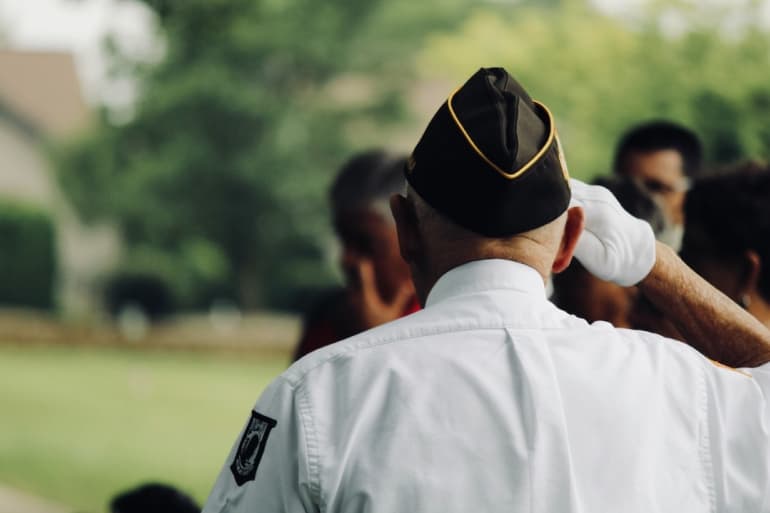The influential spiritual teacher and author of The Power of Now, Eckhart Tolle, once said, “The power for creating a better future is contained in the present moment: You create a good future by creating a good present.” As people, treatments, and populations evolve, the landscape of the recovery industry must evolve as well. The recovery industry must make positive changes “now,” to receive positive dividends in the future. This is particularly true for the changing needs of Veterans.
The Continued Need for Evolution Within the Recovery Industry
Now, the truth is that the mental health and addiction recovery industry has grown tremendously throughout the 20th and 21st Centuries. Long gone are the times when addiction was thought to be “cured” by lobotomies or long-term stays in sanitariums.
The stigma regarding mental illness and addiction has also gone down significantly, from thoughts about these issues as some sort of weakness or moral failing to the reality that they are treatable chronic diseases. However, many stigmas still remain and need to be addressed. These are stigmas such as the public perception that substance use remains a choice and the individual stigma that some people are beyond treating. Also, these stigmas are particularly present in veteran populations.

Computer games provide a fun way to pass the time but some people take it too far. What is video game addiction treatment and who needs it?
More infoThe Changing Needs of Veterans in Treatment
We now know so much more about the trauma that active combat can inform. This trauma can be devastating if not addressed. Yet, this trauma is nothing new. It can be traced back through the history of combat in the U.S. The reality is that it was simply labeled and treated differently, or, more commonly, not treated at all.

For example, in World War I, what we now know as post-traumatic stress disorder (PTSD) was then labeled “shell shock,” and people that severely struggled with it were either told to “buck up,” or in many instances become institutionalized and abandoned. This continued throughout the 20th Century only via different names. In World War II it was called “battle fatigue,” and in the war in Vietnam it was called “war neurosis” or, even worse, “Vietnam syndrome.” Thankfully this is not the case today.
However, just because we now have a better understanding of combat and PTSD doesn’t mean that we have established enough adequate means to address it. The same is true for addiction and other forms of mental illness that affect veteran communities. This is exemplified by the number of veterans who still struggle with addiction and mental illness.
Focusing On Veteran Specific Addiction and Mental Health Care
According to the Substance Abuse and Mental Health Services Administration (SAMHSA), In 2020, approximately 5.2 million Veterans experienced a behavioral health condition. Also, According to the U.S. Department of Veterans Affairs (VA), “More than 2 out of of 10 Veterans with PTSD also have SUD.” Additionally, “Almost 1 out of every 3 Veterans seeking treatment for SUD also has PTSD.” These numbers represent an increasing need for assistance to veteran populations.
They also represent a need for treatment plans that are designed specifically for veterans. This is also true of the absence of treatment plans that focus on the individual needs of each veteran and the ever-evolving diversity of the veteran community.
The Changing Needs of Veterans Must Include Individuality, as Well as Community
One group of veterans that deserves more inclusion and have specific traumas and mental health needs are veterans who also identify within the LGBTQIA+ community. These indivduals not only face stigma and trauma from active duty from prejudice regarding how they identify after they get home.
Also, the BIPOC veteran community has had a long history of facing racism both while on active duty and once they return home as veterans. Treatment must evolve to meet the specific needs of indivduals that have to navigate racism and social injustice while also in recovery.
Many veterans who struggle are also younger than those of previous generations, or at least their struggles are finally being somewhat recognized. Recovery must evolve to meet the needs of indivduals that may feel like treatment is only for older people and that they are the only young people in recovery. However, there are many vibrant young person communities in recovery. Still, there needs to be more than a focus on the specific needs of younger veterans.

Stigmas take many forms. Learn to identify, address, and overcome these stigmas in your journey to recovery by calling Hawaii Island Recovery at (866) 390-5070.
More infoAddressing the Changing Needs of Veterans at Hawaii Island Recovery
While there is an ever present need for veteran addiction and mental health care in the U.S., this need is even more present in the state of Hawaii. These veterans need a place that takes their needs seriously and treats them with respect and empathy, which is exactly what we do here at Hawaii Island Recovery.

Veterans have given everything they have to help serve and protect this country. The recovery industry must now evolve to better serve and protect them.
When it comes to veterans, there are many stereotypes and stigmas that can hinder veterans from seeking help. However, many of these stereotypes and stigmas are derived from outdated beliefs of the veterans that have served. Still, the military has changed. The military includes a diverse array of individuals with different cultural backgrounds, the BIPOC population, and individuals within the LGBTQIA+ community. However, providing resources for individuals that are among these populations and communities can prove particularly difficult. Even certain treatment programs for veterans discriminate. This is not the case here at Hawaii Island Recovery. We will always accept and provide safe spaces for veterans from all populations. For more information, please contact Hawaii Island Recovery today at (866) 390-5070.
 Hawaii Island Recovery
Hawaii Island Recovery 










